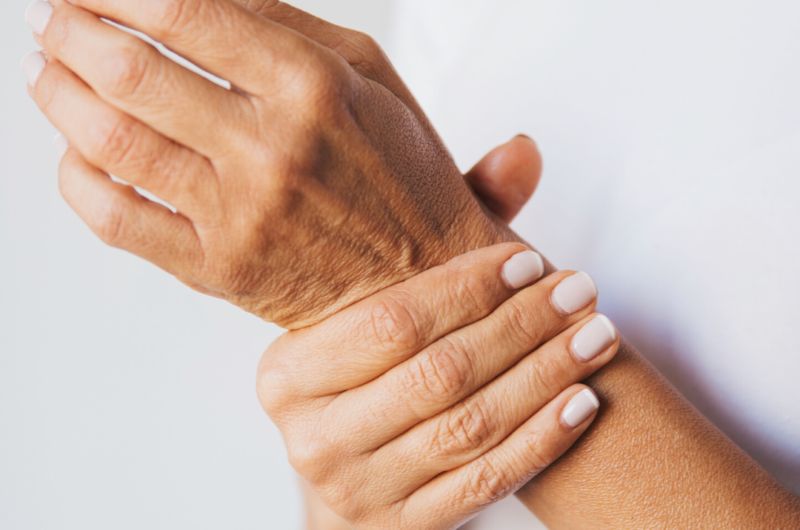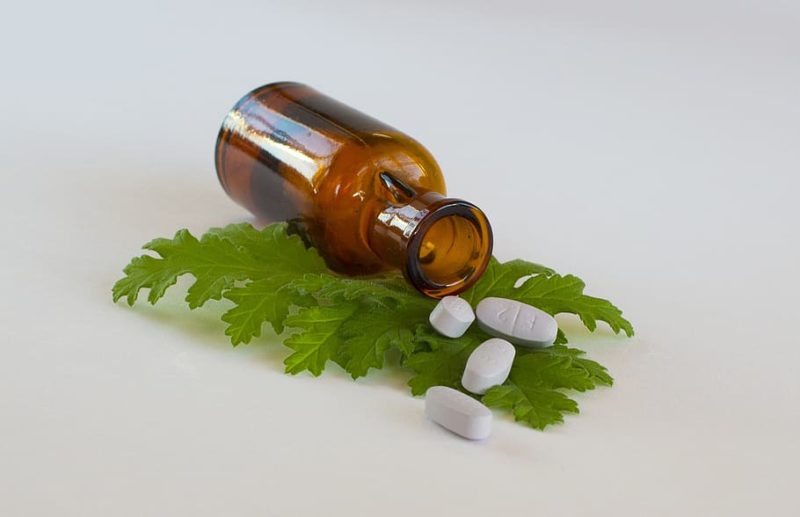Arthritis Pain Relief: How to Manage Arthritis Pain
Unfortunately for arthritis sufferers, pain is an all-too-familiar part of daily life. Joint pain and inflammation are characteristic of arthritis, and can severely impact sufferers’ abilities to perform day-to-day activities. As well as the physical impairment that pain can bring, pain from arthritis can also have a drastic impact on an individual’s happiness and quality of life – it can be hard to find enjoyment and pleasure in the little things when you’re in constant discomfort.
Thankfully, there are a number of pain relief options. Exercise, topical ointments, yoga stretches, massage therapy, acupuncture, herbal remedies and pain relief medications can all help to ease the pain associated with arthritis or assist in recovery.
Due to the many different types of arthritis and the various causes of the pain that it brings, there isn’t one single treatment that works well for everyone. Finding your own way to manage the pain can be a case of trial and error, with many people finding that a combination of different pain relief methods provides the best results.
The important point to remember is that arthritis pain doesn’t have to rule your life – it may take a while to find an effective treatment strategy, but once you can ease your joint pain, you’ll never look back.
Get Arthritis Relief Naturally >>
What Does Arthritis Pain Feel Like?
Staggeringly, almost 1/4 of adults in the United States suffersuffers from arthritis.
There are many different types of arthritis, but each is characterized by debilitating joint pain, stiffness and swelling, all of which occur as a result of inflammation. Arthritis can occur in a single joint or multiple joints, and most commonly manifests in the hands, wrists, knees and elbows.
The most common form of arthritis is osteoarthritis, a degenerative joint disease that occurs when the cartilage between two bones becomes worn down, causing pain and inflammation. Joint mobility is impaired, leaving osteoarthritis sufferers in constant pain and unable to move freely.
- Osteoarthritis pain is often described as a stiffness that is made worse by inactivity – joints are tight and painful in the morning and it takes a few minutes of movement to loosen them up.
- Sharp pain may also occur when certain movements are performed, or when too much activity aggravates the joint.
Rheumatoid arthritis is another common form of arthritis, but occurs through a different mechanism to osteoarthritis. Rheumatoid arthritis is an autoimmune disease, causing the body to attack its own joints. This immune response causes inflammation in the joint(s), and results in body aches – similar to how viral infections such as influenza can trigger an immune response that causes achy joints. The difference is that rheumatoid arthritis doesn’t go away after a week or so, and affects sufferers for their entire lives. This condition is characterized by periods of increased pain, known as flare-ups, which can be very debilitating. [Note: CBDMEDIC products are not developed for autoimmune diseases such as rheumatoid arthritis. This material was provided for education purposes only].
Learn more about what arthritis pain feels likeArthritis Knee Pain: How Can You Find Relief?
Our knees are an important joint that is commonly affected by arthritis. Although arthritic knees can be symptom-free, they are more commonly associated with pain, stiffness, and decreased mobility. Simple movements such as bending or walking can be painful or even impossible for those suffering from severe rheumatoid or osteoarthritis. Excessive activity can worsen arthritic knee pain, but inactivity also causes joint stiffness and pain, which is why arthritic knees can be most painful first thing in the morning, or after sitting for a long period of time.
Thankfully, there are treatment options for arthritic knees that can provide some pain relief. Many arthritis sufferers wondering about how to relieve arthritis pain turn to natural remedies and naturally-derived products to support their health and wellbeing.
Lifestyle changes can also play a big role in mitigating knee pain caused by arthritis, including implementing an exercise routine arthritic knees must be exercised, but too much exercise can worsen the pain. Gentle exercise such as walking or swimming can offer some relief from arthritic symptoms, and stretching regularly can also help to loosen and strengthen the knee joint. Exercise, naturally-derived products, and natural pain management solutions can offer effective relief from arthritis symptoms, and can be much gentler on the body than pharmaceutical pain-relieving options.
Learn more about finding relief from arthritis knee painManaging Arthritis Pain in Hands
Arthritis in the hands is a condition that is often associated with natural wear and tear, meaning that it is more common as we age.
Think how many times you use the joints in your hand every day –
- whenever you make a fist
- whenever you hold a pen
- whenever you grip a steering wheel.
It’s no wonder that arthritis in the hand is so common – we use our hands for almost everything. Arthritis in the hand is characterized by joint pain, stiffness, and a loss of mobility, all of which can have a devastating effect on our ability to perform the simplest of daily activities.
While there are many over-the-counter or prescription drugs that can offer pain relief from arthritic hands, these often come with unwanted side effects. Many of these pharmaceutical options are harsh on our kidneys and liver, and prescription pain medications also come with the risk of developing a dependency. To avoid these unwanted side effects, many arthritis sufferers turn to naturally-derived pain relief options.
Dietary supplements can help optimize the body’s health by adding supportive nutrients to the body.
For example, resveratrol from grapes, berries, and even dark chocolate can increase the antioxidants in your diet to help keep you strong and healthy. Exercise and naturally-derived topical pain-relieving remedies can also help to control pain associated with arthritis in the hands.
These treatments work best when used in combination – adding exercise as well as focusing on your diet may be the best way to ease the aches and pains of your arthritic hands.
Learn more about relief from arthritis pain in handsNatural Pain Relief for Arthritis
Many arthritis sufferers are on the hunt for natural solutions that offer safe and effective relief from their arthritis symptoms. While prescription or over-the-counter pain-relieving medications can be effective, taking these drugs long-term can bring a host of unwanted side effects, such as liver, kidney and digestive problems. Luckily, many natural remedies offer targeted, safe and effective relief, and are also an affordable solution when it comes to managing pain associated with arthritis.
Finding a natural solution for treating painful arthritis symptoms can be as easy as making simple lifestyle changes. These changes may not only reduce pain, but can also bring about a range of other health benefits. For example, increasing your level of physical activity and getting your joints moving can help to reduce your pain levels, and also keep you within a healthy weight range. Of course, exercise doesn’t sound appealing when you’re in pain, but simple movements like stretches can make a big difference when it comes to tackling pain associated with arthritis, and also help to strengthen your muscles and improve flexibility.
Simple dietary changes can also help to improve your arthritis symptoms. Adding omega-3 fatty acids to your diet can support your immune system and bone health. Foods rich in omega-3 fatty acids include fish and fish oil, seaweed, chia, hemp and flax seeds, walnuts, edamame and kidney beans.
Increasing your physical activity or making changes to your diet are great ways to find relief from arthritis pain, without the potentially harmful side-effects of traditional pain-relieving drugs.
Arthritis Pain Medication: Conventional Vs. Natural Solutions
Current mainstream approaches to arthritis pain management utilize pharmaceutical agents to reduce inflammation and provide pain relief. Depending on the type of arthritis, common treatments include non-steroidal anti-inflammatory drugs (NSAIDs) and corticosteroids to reduce inflammation, and analgesics for pain relief.
Although these treatments can offer pain relief for many users, other arthritis sufferers state that they do not experience effective relief from traditional pharmaceutical approaches. What’s more, these medications can come with a whole range of unwanted side effects, and long-term use (as is regularly required for arthritis sufferers) can be damaging to the body.
For example, long-term use of NSAIDs can cause damage to the kidneys and cardiovascular system, and result in problems with the digestive system ranging from mild nausea to gastric reflux or, in severe cases, potentially life-threatening gastrointestinal bleeding. Corticosteroids act to reduce inflammation (and therefore pain), but long-term use can also weaken the bones, cause weight gain, increase blood pressure, contribute to the onset of diabetes, weaken the immune system, and more.
Although these drugs may provide relief from the pain associated with arthritis, it is important to understand the potential side effects first, and perhaps investigate the many natural alternatives for arthritis pain management. Natural options such as herbal remedies, topical creams, massage therapy and exercise can all provide effective arthritis pain relief, can save money and visits to a doctor’s office.
Learn more about natural pain relief for arthritisArthritis Weather Index: The Link Between Weather and Arthritis
Many arthritis sufferers believe that they can predict changes in the weather based on the severity of their arthritis symptoms. In recent years, scientific studies are starting to back up the idea that arthritis symptoms may worsen in certain weather conditions, and some weather forecasting apps even include an “arthritis forecast” now, to help arthritis sufferers prepare for times where their symptoms may worsen.
How can the weather influence how much joint pain an individual experiences? Research suggests that barometric pressure may play a role in the relationship between weather and joint pain. Barometric pressure changes with different weather systems – you may have heard “high pressure systems” and “low pressure systems” discussed on the weather segment of the news.
Early studies investigating the link between painful arthritis symptoms and the weather focused on the role of pressure changes. Scientists placed patients in pressure chambers and recorded their pain levels at different air pressures. Although some studies reported that patients experienced increased pain whenever the pressure decreased, this finding has not always been replicated. Some studies have been unable to find a link between barometric pressure changes and arthritis pain.
This may be due to the many different types and causes of arthritis – it’s possible that not everyone’s joints are sensitive to changes in the weather. While you may not want to quit your job and become a meteorologist just yet, the relationship between arthritic joint pain and changing weather systems does seem to be more than just a coincidence.
Learn more about arthritis weather index






